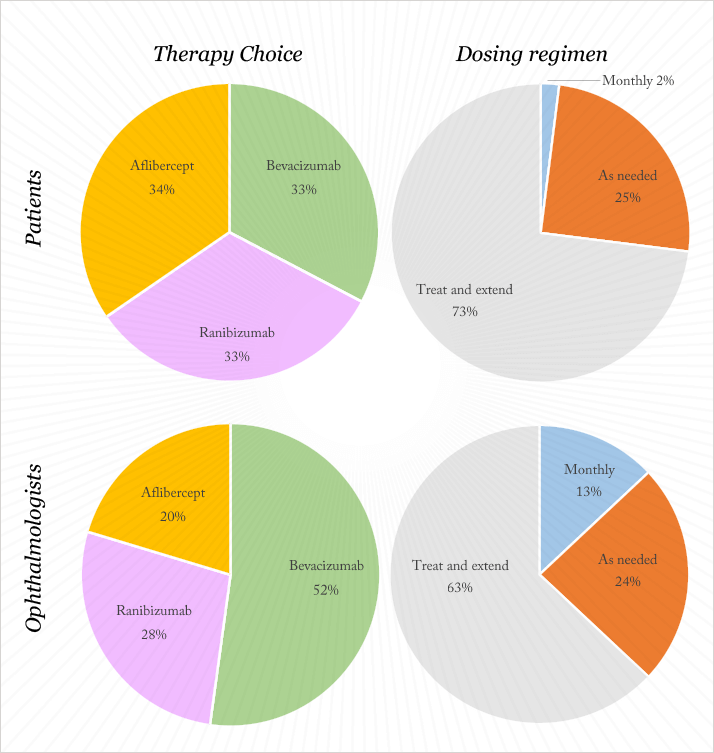
When it comes to treating wet age-related macular degeneration (AMD), ophthalmologists are more likely to choose more expensive anti-VGEF agents and less likely to choose treat-and-extend dosing regimens for themselves, compared with what they might prescribe for patients (1).
Researchers based at the Rutgers-Robert Wood Johnson Medical School in New Jersey, performed a survey of 200 retina specialists in the USA. They were split in to two groups – the first was presented with a hypothetical 70-year old patient, the second group was told that they were that patient. The symptoms were wet AMD with 20/100 visual acuity in the left eye, choroidal neovascularization, subretinal fluid, cystoid macular edema, and high-risk drusen in the right eye. Respondents then gave their recommendations on dosing regimen and on which anti-VEGF treatment they would use: aflibercept, bevacizumab, or ranibizumab.
So what choices did they make? When it came to the hypothetical patient, just over half of the specialists recommended using bevacizumab. Those treating themselves had less of a preference for bevacizumab, being split equally across the three drugs – demonstrating a slight, but significant preference for the costlier compounds. Dosing regimen choice differed between the groups too – 73 percent said they would treat and extend in the patient, but only 63 percent would do the same if they were the patient.
It’s a small survey (so take the results with a pinch of salt), but the results tell an interesting story: generally, it’s cheaper drugs for the patient, with the longest possible intervals (understandable in a country with expensive health insurance and co-pays for premium medications), and more expensive and potentially more effective drugs for the eyecare professionals, that are more likely to be administered to a regimen that minimizes the risk of visual acuity loss (at the cost of more injections).
If you had AMD, would you follow the regimen you recommend to your patients? If not, why not?
References
- K.W. Jeng, J. Wilgucki, S. Halperin, et al., “Retina specialists treating age-related macular degeneration recommend different approaches for patients than they would choose for themselves”, Retina, 34, 1796–1801 (2014). doi:10.1097/IAE.0000000000000182.
